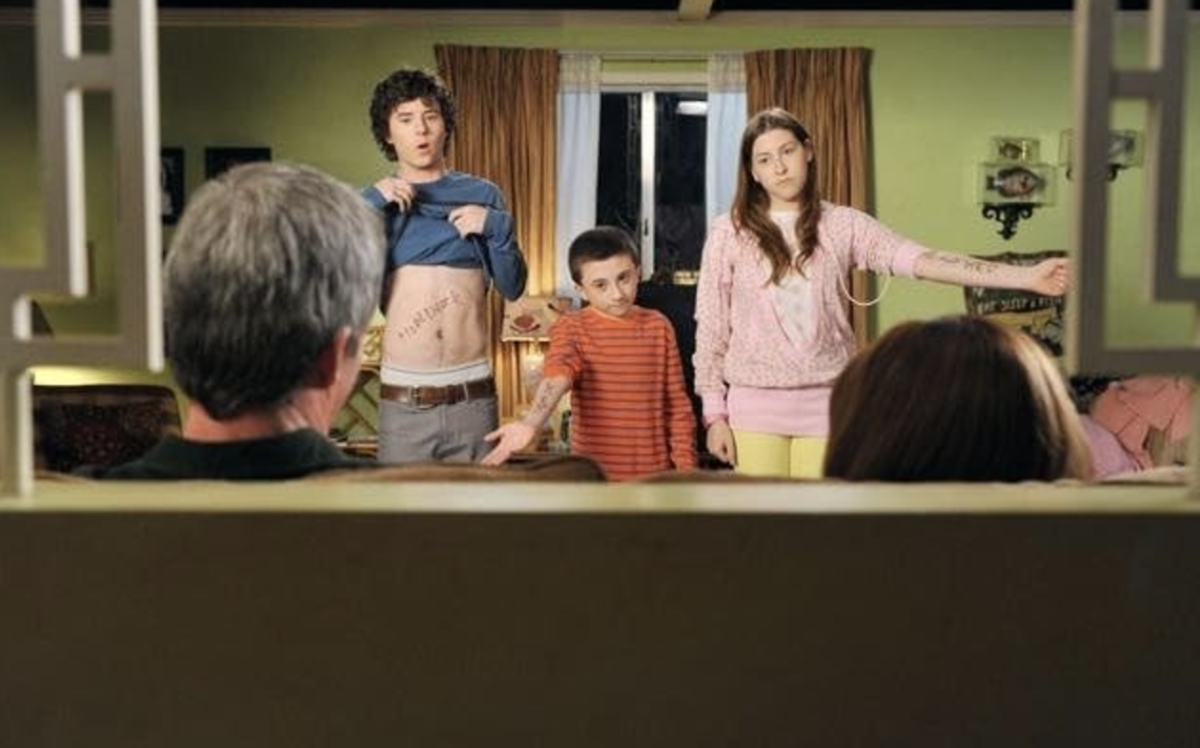
“Mad Men” has never been the most serialized of shows, its creators preferring to produce thematically related, but for the most part standalone individual episodes. So it’s no wonder that the first three episodes of the series’ last batch of seven barely move the series’ plot along at all. Matthew Weiner has always been a slow-paced showrunner, and “Mad Men” is anything but a plot-driven show. It is about theme and character, and the first few episodes of this mini-season fit the bill.
Through the first few episodes of season 7B, Don Draper (Jon Hamm) has a series of disconnected misadventures. Some of these misadventures involve the women of Don’s life: past, present and future. Don finds out that a former lover has passed away, he puts the finishing touches on his divorce settlement with Megan (Jessica Paré) and Don begins a new relationship with a deeply troubled waitress, Diana (Elizabeth Reaser).
And by the way, if Jon Hamm never wins an Emmy for Don Draper, the Emmys should no longer be a thing. His is one of the great performances in television history and deserves to be recognized for his work.
Don spends an episode thinking about the future – what more does he want out of life now that he has his dream job, massive wealth and no serious familial commitments? An SC&P employee, Mathis, accuses Don of achieving success entirely as a result of his good looks rather than his knack for advertising. This leads to a powerfully affecting parenting moment later in the same episode, when Don tells his daughter Sally (Kiernan Shipka), “You’re a very beautiful girl. It’s up to you to be more than that.”
That moment comes about after Sally confronts Don in a similar fashion to Mathis. Earlier in the episode, Don takes Sally and her teenage friends out to dinner, and one of Sally’s friends becomes shamelessly infatuated with Don. It makes for an awkward scene when Don flirts back with the adolescent in front of his daughter. Later, Sally pointedly tells him that she wants nothing more than to be a different person than he and her mother Betty (January Jones). It’s a strong moment, possibly the best scene of these first few episodes.
It’s an important moment for Sally not just because her father is teaching her a valuable life lesson, but because it comes after she learns that he childhood friend Glen (Marten Holden Weiner) is infatuated with Betty and about to join the army, a prospect that terrifies Sally. She is disenchanted with both of her parents and their proclivities, and hearing those down to earth words coming from her father gives her something to think about.
The plot picks up again in the fourth episode of these last seven. McCann Erickson tells the SC&P partners that it has decided to absorb SC&P into the larger parent company. The SC&P gang spends an episode trying to maneuver their way out of this professional predicament like they did in the season three finale, “Shut the Door. Have a Seat.” However, this time it does them no good – McCann’s decision is final. The McCann people even convince the SC&P partners to look at the absorption as a good thing, as they will be working for some of the biggest brands in the world, like Nabisco and Coca-Cola.
When the SC&P partners announce the news to the office’s lower-level employees, the employees all voice their annoyance. As they all filter out of the common area, Don shouts at them, “This is the beginning, not the end!” The end of “Mad Men” itself is fast approaching, and its protagonist can’t let go of his intrinsic need to always be starting out, to never actually reach the finish line.
Through these episodes, other members of the ensemble have their moments to shine as well: Peggy (Elizabeth Moss) finally shares her big motherhood secret with Stan (Jay R. Ferguson), Joan (Christina Hendricks) develops a romance with a rich retiree named Richard (Bruce Greenwood), Pete tries, unsuccessfully, to get his daughter into a prestigious school and, most importantly, Lou Avery (Allan Havey) decides to move to Tokyo to pursue his dream of making his comic strip “Scout’s Honor” a reality.
The scene in which Avery tells Don he is moving is my favorite scene of these episodes – the way Lou gloats about it and rubs it in his face, and Don is just mildly annoyed – pure comedic genius, I tell you.
“Mad Men” is every bit as wonderful now as it ever has been. It’s an all-time great TV show, and I honestly can’t believe that it’s going to be over so soon. Weiner has developed each and every character on the show so well and with such care and attention to detail, and as a result it’s unlike any other show currently on TV – uniquely sensitive and empathetic.
Eli Fine can be reached at [email protected] and followed on Twitter @ElazarFine.


















